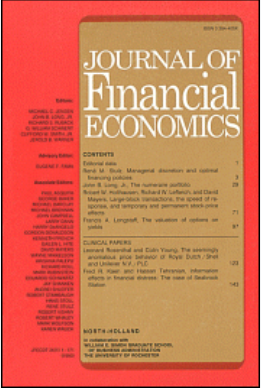机器学习共同基金经理的技能
IF 10.4
1区 经济学
Q1 BUSINESS, FINANCE
引用次数: 0
摘要
我们使用机器学习表明,在收费前后,基金特征可以始终如一地区分高绩效和低绩效的共同基金。跑赢大盘的情况持续了三年多。基金动量和资金流是未来风险调整基金业绩的最重要预测因素,而基金持有股票的特征并不能预测。经过一段时间的情绪高涨后,预测性多空投资组合的回报率更高。我们使用神经网络进行的估计使我们能够揭示情绪与资金流动和资金动量之间的新颖而实质性的相互作用效应。本文章由计算机程序翻译,如有差异,请以英文原文为准。
Machine-learning the skill of mutual fund managers
We show, using machine learning, that fund characteristics can consistently differentiate high from low-performing mutual funds, before and after fees. The outperformance persists for more than three years. Fund momentum and fund flow are the most important predictors of future risk-adjusted fund performance, while characteristics of the stocks that funds hold are not predictive. Returns of predictive long-short portfolios are higher following a period of high sentiment. Our estimation with neural networks enables us to uncover novel and substantial interaction effects between sentiment and both fund flow and fund momentum.
求助全文
通过发布文献求助,成功后即可免费获取论文全文。
去求助
来源期刊

Journal of Financial Economics
Multiple-
CiteScore
15.80
自引率
4.50%
发文量
192
审稿时长
37 days
期刊介绍:
The Journal of Financial Economics provides a specialized forum for the publication of research in the area of financial economics and the theory of the firm, placing primary emphasis on the highest quality analytical, empirical, and clinical contributions in the following major areas: capital markets, financial institutions, corporate finance, corporate governance, and the economics of organizations.
 求助内容:
求助内容: 应助结果提醒方式:
应助结果提醒方式:


